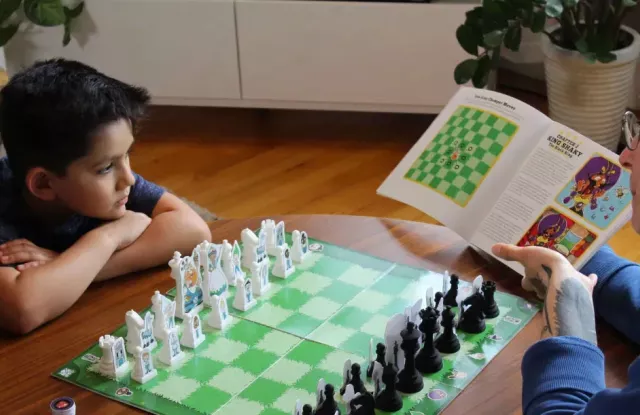American dream Is elusive for millenials

GRAFTON, Mass. – After breakfast, his parents left for their jobs,
and Scott Nicholson, alone in the house in this comfortable suburb west
of Boston, went to his laptop in the living room. He had placed it on a
small table that his mother had used for a vase of flowers until her
unemployed son found himself reluctantly stuck at home.
The daily
routine seldom varied. Mr. Nicholson, 24, a graduate of Colgate
University, winner of a dean’s award for academic excellence, spent his
mornings searching corporate Web sites for suitable job openings. When
he found one, he mailed off a résumé and cover letter – four or five a
week, week after week.
Over the last five months, only one job
materialized. After several interviews, the Hanover Insurance Group in
nearby Worcester offered to hire him as an associate claims adjuster, at
$40,000 a year. But even before the formal offer, Mr. Nicholson had
decided not to take the job.
Scott’s grandfather, William S. Nicholson, a
World War II veteran and a retired stock broker, has watched what he
described as America’s once mighty economic engine losing its
pre-eminence in a global economy. The grandfather has encouraged his
unemployed grandson to go abroad – to “Go West,” so to speak.
“I
view what is happening to Scott with dismay,” said the grandfather, who
has concluded, in part from reading The Economist, that Europe has
surpassed America in offering opportunity for an ambitious young man.
“We hate to think that Scott will have to leave,” the grandfather said,
“but he will.”
The grandfather’s injunction startled the grandson.
But as the weeks pass, Scott Nicholson, handsome as a Marine officer in
a recruiting poster, has gradually realized that his career will not
roll out in the Greater Boston area – or anywhere in America – with the
easy inevitability that his father and grandfather recall, and that
Scott thought would be his lot, too, when he finished college in 2008.
“I
don’t think I fully understood the severity of the situation I had
graduated into,” he said, speaking in effect for an age group – the
so-called millennials, 18 to 29 – whose unemployment rate of nearly 14
percent approaches the levels of that group in the Great Depression. And
then he veered into the optimism that, polls show, is persistently,
perhaps perversely, characteristic of millennials today. “I am
absolutely certain that my job hunt will eventually pay off,” he said.
For young adults, the prospects in the workplace, even for the
college-educated, have rarely been so bleak. Apart from the 14 percent
who are unemployed and seeking work, as Scott Nicholson is, 23 percent
are not even seeking a job, according to data from the Bureau of Labor
Statistics. The total, 37 percent, is the highest in more than three
decades and a rate reminiscent of the 1930s.
The college-educated
among these young adults are better off. But nearly 17 percent are
either unemployed or not seeking work, a record level (although some are
in graduate school). The unemployment rate for college-educated young
adults, 5.5 percent, is nearly double what it was on the eve of the
Great Recession, in 2007, and the highest level – by almost two
percentage points – since the bureau started to keep records in 1994 for
those with at least four years of college.
Yet surveys show that
the majority of the nation’s millennials remain confident, as Scott
Nicholson is, that they will have satisfactory careers. They have a lot
going for them.
generations and they were raised by baby boomers who lavished a lot of
attention on their children,” said Andrew Kohut, the Pew Research
Center’s director. That helps to explain their persistent optimism, even
as they struggle to succeed.
course, but no one in his network of family and friends has been able to
steer him into marketing or finance or management training or any
career-oriented opening at a big corporation, his goal. The jobs are
simply not there.
The Millennials’ Inheritance
The Great
Depression damaged the self-confidence of the young, and that is
beginning to happen now, according to pollsters, sociologists and
economists. Young men in particular lost a sense of direction, Glen H.
Elder Jr., a sociologist at the University of North Carolina, found in
his study, “Children of the Great Depression.” In some cases they were
forced into work they did not want – the issue for Scott Nicholson.
Military
service in World War II, along with the G.I. Bill and a booming
economy, restored well-being; by the 1970s, when Mr. Elder did his
retrospective study, the hardships of the Depression were more a memory
than an open sore. “They came out of the war with purpose in their
lives, and by age 40 most of them were doing well,” he said, speaking of
his study in a recent interview.
The outlook this time is not so
clear. Starved for jobs at adequate pay, the millennials tend to seek
refuge in college and in the military and to put off marriage and
child-bearing. Those who are working often stay with the jobs they have
rather than jump to better paying but less secure ones, as young people
seeking advancement normally do. And they are increasingly willing to
forgo raises, or to settle for small ones.
“They are definitely
more risk-averse,” said Lisa B. Kahn, an economist at the Yale School of
Management, “and more likely to fall behind.”
In a recent study,
she found that those who graduated from college during the severe early
’80s recession earned up to 30 percent less in their first three years
than new graduates who landed their first jobs in a strong economy. Even
15 years later, their annual pay was 8 to 10 percent less.
Many
hard-pressed millennials are falling back on their parents, as Scott
Nicholson has. While he has no college debt (his grandparents paid all
his tuition and board) many others do, and that helps force them back
home.
In 2008, the first year of the recession, the percentage of
the population living in households in which at least two generations
were present rose nearly a percentage point, to 16 percent, according to
the Pew Research Center. The high point, 24.7 percent, came in 1940, as
the Depression ended, and the low point, 12 percent, in 1980.
Striving for Independence
“Going it alone,”
“earning enough to be self-supporting” – these are awkward concepts for
Scott Nicholson and his friends. Of the 20 college classmates with whom
he keeps up, 12 are working, but only half are in jobs they “really
like.” Three are entering law school this fall after frustrating
experiences in the work force, “and five are looking for work just as I
am,” he said.
Like most of his classmates, Scott tries to get by
on a shoestring and manages to earn enough in odd jobs to pay some
expenses.
The jobs are catch as catch can. He and a friend
recently put up a white wooden fence for a neighbor, embedding the posts
in cement, a day’s work that brought Scott $125. He mows lawns and
gardens for half a dozen clients in Grafton, some of them family
friends. And he is an active volunteer firefighter.
“As frustrated
as I get now, and I never intended to live at home, I’m in a good
situation in a lot of ways,” Scott said. “I have very little overhead
and no debt, and it is because I have no debt that I have any sort of
flexibility to look for work. Otherwise, I would have to have a job,
some kind of full-time job.”
That millennials as a group are
optimistic is partly because many are, as Mr. Kohut put it, the children
of doting baby boomers – among them David Nicholson and his wife,
Susan, 56, an executive at a company that owns movie theaters.
Click here to finish the article.



I agree totally. The American dream has actually turned into the American nightmare and it seems like it is hard to wake up. I am recently unemployed and I am having a difficult time finding employment. I am starting to realize that I need to trust God in a radical way. I have been having difficulty with this because of the fact that I have a wife and four children. I am at the same an ordained minister and can’t seem to shake the desire to pursue ministry full time even though my commitment to supporting my family. I am learning that the American dream does not necessarily provide contentment.
After looking at the facts that were provided about the Great Depression it then occurred to me that we saw the rise of people Billy Graham. So could this also be a period where will be more receptive to the gospel?
“The silver lining is, you might as well trust God in a radical way if your options are this limited. What have you got to lose?”
Just this morning, I’ve been wrestling with God and trying to be brave; asking if the options and directions are there & I’m not seeing them or hearing them. In the middle of this pen, paper, & on my knees prayer- I popped up to stretch and read your blog. And somehow now, I know this oft mysterious unseen God is listening…to even me, Seth. And perhaps, this sliver of encouragement will expand and be translated to my kids, family, and friends. Thank you for your consistency in sharing your bread.
Further on, farther in.
They might as well see what the rest of the world has to offer–or what they have to offer the rest of the world.
Thanks Seth…The dangerous wonder of the risk filled Christian walk should never be seen as optional. We find life giving motivation sometimes on the back end of God manipulating circumstances to keep us humble and dependent. This was a good reminder.